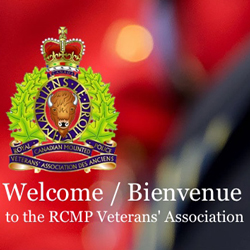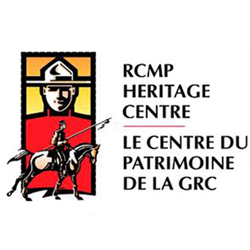Coal Oil Curse: An Incident In The Porcupine Hills – 102 Years Ago

Veteran Windy Gale sent us this article which he transcribed for and it appeared in the 1964 edition of the Vancouver Division’s Magazine.
Retired Corporal Fred Bard (Reg.#4332) provided the following details to the editor of the Scarlet & Gold Magazine –
Dear sir;- please find enclosed an incident which happened in 1905 whilst I was stationed at Beaver Creek Detachment, Spring Point, Southern Alberta. I thought you could put it in Scarlet and Gold.
I joined the North West Mounted Police at Regina on the 20th of February, 1905. Inspector Frank Church was the Riding Master at that time. The first morning in the Riding School he asked 20 of us if we knew anything about a horse. We told him “not much”. He talked to us about the horses and said to us: “Stand to your horses and prepare to mount,” which we did. I was on the lead horse and after we had walked around the school he came up to me and asked me what outfit I had come out of. I told him the Imperial Yeomanry. There were two more ex-cavalry men in the ride and he told us to “get out of here—I don’t want to see you again.”

Photograph of a Royal Yeomanry cap badge.
I was sent to Beaver Creek Detachment in the Porcupine Hills, Spring Point. It was a two-man detachment with two horses and one pack pony. Constable Bob Robinson was in charge. One of us would patrol for a week while the other would stay and look after the detachment. Every Sunday one of us would go to Peigan Detachment with our weekly reports, stay overnight and come back on the Monday morning.
One Thursday, I had to ride to Macleod to get my horse shod. I stayed there on Friday and left for the Peigan Reserve to stay overnight on Saturday. On Sunday morning there was a blizzard so I stayed over Sunday and got up on Monday morning to feed my horse. I saw a big bunch of cattle in a ring. They were about 200 yards from the stable. I walked over to see what they had to eat. I could see something lying in the snow. I thought it was a bear but to my surprise it was a frozen policeman.
I dragged him to the detachment and knocked on the door. Mrs. Geoghegan opened the door and seeing what I had she fainted away. Corporal John Geoghegan (Reg.#1811) said, “Fetch him in. Who is he?”

Photograph of RNWMP Corporal John Geoghegan (Reg.#1811) Source of photo – RCMP Gravesite database.
I then said, “Give me the stove lifter,” which he did. I cracked the shield of ice that was on his face and saw that it was my partner whom I had left at the Detachment on Thursday. I asked Corporal Geoghegan if he had any coal oil and he said no. I then asked him if he would go over to the Indian Agent and get five gallons which he did.
By the time he got back I had cut off Constable Robinson’s clothes and gloves and had rolled him in three blankets. I then poured some coal oil over him and sat around with Corporal Geoghegan. After a while we heard a soft moan and we knew that he was alive. Corporal Geoghegan then sent an Indian scout to Macleod for a doctor.
When I left for my Detachment it was 54 below zero. I did not see Constable Robinson again until two years after I was married and living in Granum. One afternoon Robinson came to my house and asked my wife where I was. She asked him who he was and what he wanted me for. He told my wife that he had come to thank me for saving his life. When I met him I noticed a cut on his upper lip and I think this was where I had hit him with the stove lifter. I asked Constable Robinson what had happened and this is what he told me.
There had been two four-horse teams pull into the Detachment yard from Macleod for some firewood, and as he thought they might eat all our rations and hay he told them that he was going to the Peigan Detachment and he left on the Sunday morning after the blizzard had started. He made it to the north gate of the Peigan Reserve but the snow was so deep he thought he could make it the rest of the way on foot and turned his horse loose. He fired his revolver four times at the North Gate thinking that the homesteaders would hear it but apparently they did not. He told me that he left one round for himself but his hands were frozen and he could not pull the trigger.
When I found him there were four empty shells and one live round in his revolver. Constable Robinson said he was going to homestead in the Porcupine Hills and I have not seen him since.
FRED BARD
DETAILS ON FRED BARD – Fred was born on September 26, 1877 at Hinton England and joined the Imperial Yeomanry to serve in the Boer War.
He came to Canada and joined the Royal North West Mounted Police on February 20, 1905 and was assigned the regimental number of #4332. After “Depot”, he was posted to Fort Macleod and Porcupine Hills, Alberta and Kootenay BC. “K” & “E” Divisions, While at Kootenay BC, Fred purchased his discharge on March 12, 1907. Between 1908 and 1914, he owned a butcher shop at Monarch Alberta and homesteaded at Steveville.

Fred re-joined the Force on August 22, 1914 and was posted to Regina and Radville Sask. After completing his term in the Force in 1916, he joined the Lord Strathcona’s Horse and served with them overseas in World War I. During a battle on the Western Front, he was wounded and after recovering from his wounds was demobilized on March 11, 1919.
In April 22, 1920, he re-engaged in the Force but purchased his discharge on April 21, 1921. After leaving the Force, he worked as a Time Keeper for the CPR, as well as a police officer of General motors in Winnipeg Manitoba. Then from 1949 to 1962, Fred was a Security Guard at a brewery in Edmonton.
Veteran Larry Burden in his webpage “This Day In The RCMP” provided the following details on Fred Bard –
1978 – Former Corporal #4332 Frederick Bard celebrated his 100th birthday.
Born at Hinxton, Cambridgeshire, England, Bard came to Canada after serving in the Boer War where he met up with a war buddy and began working in the coalmines near Estevan Saskatchewan. After witnessing and reporting a shooting he accepted the advice of the investigator and joined the RNWMP on February 20, 1905. He resigned after two years service so he could get married but reenlisted in 1914 and was promoted to Corporal shortly thereafter. After failing to get sent overseas to fight in WW1, Bard purchased his discharge for $100 and enlisted with the Lord Strathcona Horse and served in France. After recuperating from being wounded in action, Bard became the tail gunner for Flying Ace Billy Bishop VC. At wars end he re-engaged in the RNWMP but left shortly thereafter to seek better a better paying job as a cook so he could support his growing family.On April 12, 1980, he passed away in Edmonton.
Fred passed away on April 12, 1980 at Edmonton Alberta.



 October 13, 2016
October 13, 2016 






